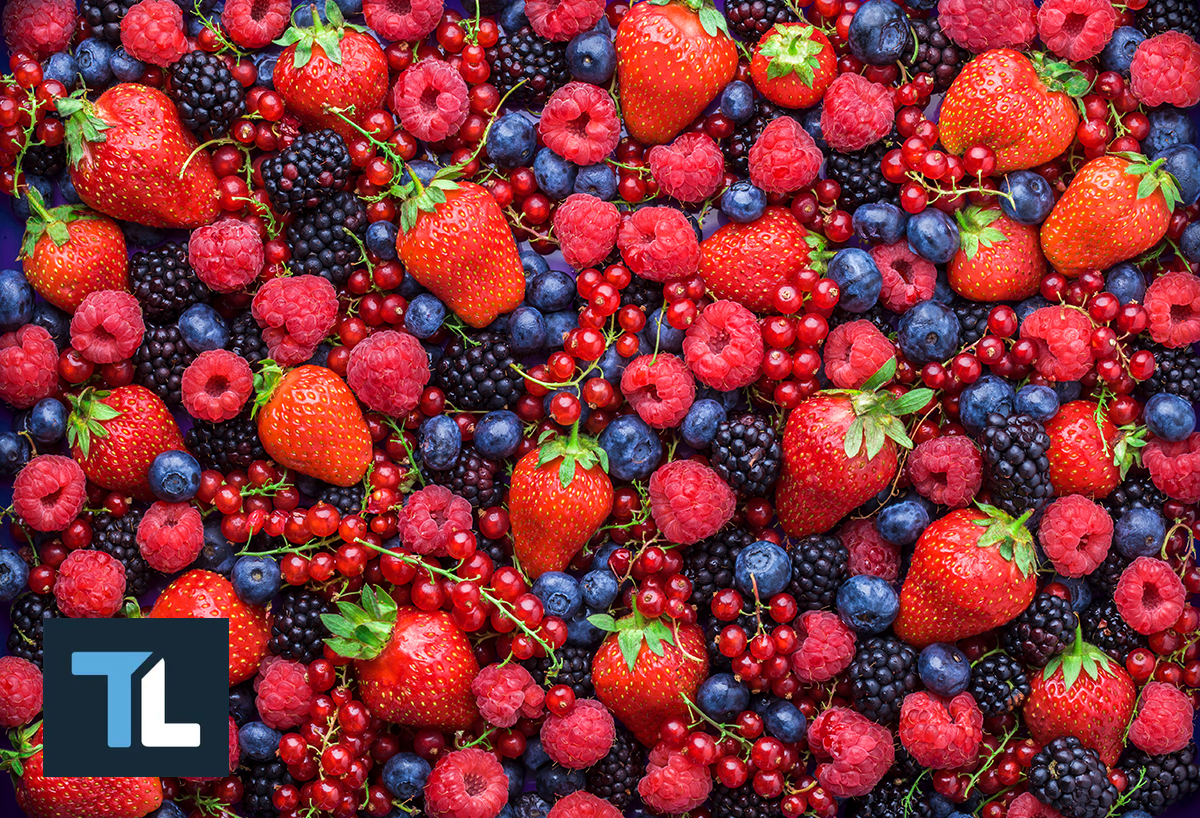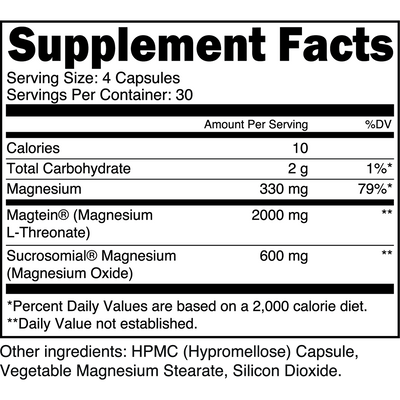Top 8 Anti Aging Foods for Longevity (Expert Review)

Top 8 Anti Aging Foods for Longevity (Expert Review)
Thanks to modern medicine, we're living longer than ever before but enjoying fewer quality years. Chronic diseases like diabetes, heart disease, and dementia, and disabilities plague many aging adults, stripping life from their years.
Oxidative stress is believed to play a key role in the development of these diseases and disabilities. It occurs when free radicals overpower your body's natural antioxidant system. Consequently, free radicals contribute to the aging process by damaging cells and causing organ dysfunction.
Fortunately, while aging is inevitable, there are certain foods with anti-aging potential that can combat the oxidative stress from free radicals, helping to add life to your years.
This article highlights the top 8 anti-aging foods for longevity.
1. Berries
Berries like blueberries, strawberries, blackberries, and raspberries are among the highest antioxidant-containing foods. They are particularly rich in polyphenols — powerful plant compounds involved in defense against ultraviolet radiation and disease-causing organisms called pathogens (1).
Berries, especially blueberries and blackberries, are also rich in anthocyanins, the compound that gives them their vibrant colors. Anthocyanins act as powerful antioxidants that lower the inflammation and oxidative stress associated with aging.
You can easily add berries to smoothies, yogurt, oatmeal, cottage cheese, and cereal, or enjoy them alone. Frozen berries are just as packed with polyphenols and anthocyanins as fresh, so opting for frozen can be a good way to prevent spoilage and waste, and sometimes, save money.
2. Salmon
Salmon is a fatty fish rich in healthy fats called omega-3 fatty acids, which possess strong anti-inflammatory effects. It's also rich in an antioxidant called astaxanthin, which contributes to salmon's pink-red appearance.
Through their anti-inflammatory and antioxidant properties, eating salmon regularly may slow age-related declines in cognitive function, blood pressure, blood sugar, and skin elasticity (2, 3, 4).
Salmon is extremely versatile, so it can be sautéed, smoked, grilled, baked, or steamed. Canned salmon, while high in sodium, can be a less expensive and a more convenient alternative to its fresh counterpart while still proving the same anti-aging benefits. If you don't like salmon, other fish like herring, tuna, and mackerel also offer healthy fats and are a great addition to an anti-aging diet.
3. Sweet Red Peppers
Sweet red peppers provide a significant amount of vitamin C, even topping oranges. Just a 1/2 cup provides 106% of the daily value. While there are several nutrients that are necessary to keep skin healthy, vitamin C is an important one that can combat skin aging (5).
Skin aging occurs as a natural consequence of aging as well as due to environmental factors, such as air pollution, sun exposure, and tobacco smoke, all of which produce free radicals that can cause fine lines and wrinkles, increase dark spots, and cause sagging skin.
Vitamin C can combat skin aging through its powerful antioxidant effects, helping to neutralize free radicals and prevent skin aging. Vitamin C also promotes youthful skin by stimulating collagen production to strengthen it and improve skin elasticity (6).
Sweet red peppers also contain other antioxidants, including lutein, quercetin, and capsanthin that protect your skin and other organs against oxidative stress that contributes to chronic disease and disability.
Enjoy sweet red peppers raw as a crunchy snack, or chop them into small pieces and add to salads, casseroles, stir fries, or salsa.
4. Coffee

Black coffee supplies more than just caffeine — it's also a significant source of antioxidants. In fact, coffee is the largest source of antioxidants in most people's diets. However, it's this combination of caffeine and antioxidants that provides its anti aging benefits (7, 8).
To this point, a review of 201 meta-analyses found a significant reduction in cancer, heart disease, liver disease, diabetes, and many other chronic conditions associated with cellular damage as a consequence of impaired antioxidant status. Coffee consumption is also associated with better brain health and a lower risk of cognitive decline and dementia (9, 10).
These data suggests that drinking three to four cups — providing 300 to 400 mg of caffeine — daily offers the greatest anti-aging effects. And remember, these associations are with black coffee — not caramel macchiatos or iced coffee drinks. These drinks contain a significant amount of added sugars, which in excess, promotes inflammation.
5. Green Tea
If you're not a fan of black coffee, green tea may be the alternative you're looking for to support healthy aging. Green tea contains about three times less caffeine per serving than coffee, but green tea provides something that coffee doesn't — a compound called epigallocatechin gallate (EGCG).
This compound is associated with many health benefits, one being healthy aging. As a potent antioxidant, EGCG can scavenge harmful free radicals to protect your cells and organs from damage. It's through these actions that green tea has been associated with the prevention of various age-related diseases. The anti-aging effects of tea may also extend to skin health by alleviating acne and boosting the skin's defense and resilience against the oxidative stress and injury that contributes to inflammation and damage (11, 12).
When making green tea, use hot but not boiling water to avoid a bitter or dry flavor, and steep for around one to two minutes.
6. Pomegranate Juice
Pomegranate juice contains a significant amount of antioxidants and other beneficial plant compounds that contribute to its anti-aging effects. These effects are so powerful that it doesn't take long to experience them.
For instance, in one study, patients who were overweight and had poor blood lipid profiles were instructed to consume 300 mL — just over one cup — of pomegranate juice or a nonactive placebo daily for two weeks. After this time, the patients who consumed the pomegranate juice experienced a significant drop in blood pressure, LDL "bad" cholesterol, and liver enzymes, which when elevated, indicate liver inflammation (13).
Additionally, pomegranate juice also reduces oxidation in the blood, and has been shown to increase glutathione levels by 23% when consumed for 15 days. Glutathione is involved in detoxification and functions as a strong antioxidant, helping to protect cells from free radicals that contribute to aging and disease. What's more, the anti-aging effects of pomegranate juice have been shown to remain for some time after removing it from the diet (14).
7. Olive Oil

Olive oil is the major fat source in the Mediterranean diet, which is linked with longevity and a reduced risk of several age-related diseases. There are certainly other factors of the Mediterranean diet that are responsible for these benefits, but its high content of olive oil is a major contributor (15).
Olive oil — especially extra-virgin olive oil — is particularly rich in antioxidants such as squalene and oleic acid. These compounds offer protection against various chronic diseases by combatting the oxidative stress and inflammation that underlie their development. For example, a review of several peer reviewed studies demonstrated that the regular consumption of olive oil significantly reduced levels of C-reactive protein, interleukin-6, and tumor necrosis factor — three major markers of inflammation (16).
You can incorporate more extra virgin olive oil into your diet by using it as a dressing, drizzling it on vegetables like tomatoes, serving it with whole grain bread, and using it to roast or grill vegetables.
8. Grapes
Often referred to as nature's candy, grapes are an excellent source of resveratrol, a potent antioxidant and anti-inflammatory compound. The compound is found in varying amounts among grape varieties, but it's relatively higher in muscadine grapes, with its skin color ranging from light bronze to pink to purple to black. In fact, muscadine grapes possess one of the highest antioxidant levels among fruits, affording it near immunity from insects and disease (17).
Resveratrol, among other potent antioxidants in grapes, such as lycopene, quercetin, and melatonin, can slow the cellular aging process by suppressing oxidative stress, relieving inflammation, and improving mitochondrial function to control cell behavior and survival (18).
Red wine also provides resveratrol since it's produced from grapes. And while there are data to suggest that moderate consumption may lower your risk for cardiovascular disease and other diseases associated with aging, it's not recommended to start drinking for these benefits if you don't currently drink.
In either case, grapes make an excellent refreshing snack, but you can also slice and add them to salads, or pair them with cheese and nuts.
The Takeaway
Aging is inevitable, but you combat the oxidative stress and inflammation that accelerates it and contributes to the development of chronic disease and disability with age by eating a diet rich in anti-aging foods.
Berries, salmon, sweet red peppers, olive oil, and grapes are packed with polyphenols and antioxidants that fight inflammation and arm your body's natural antioxidant system with the strength it needs to neutralize damaging free radicals. In the same way, consuming coffee, tea, and pomegranate juice can slow cognitive decline, promote healthier skin, and offer other anti-aging effects.
In addition to adding these anti-aging foods to your diet, staying physically active by engaging in both resistance and aerobic-style training, sleeping well, and managing your weight and other aspects of your metabolic health like blood pressure and blood sugar are proven things you can do for your health and longevity.
FAQs
Is There Such Thing as an Anti-Aging Diet?
Several types of diets including the Mediterranean diet, fasting diets, and calorie and protein restriction diets have some evidence to suggest they can delay the onset or progression of many age-related functional declines and diseases. However, whether one is better than the other and to what effect remains unknown (19).
Do Anti-Aging Supplements Exist?
Some supplements — which usually just provide isolated bioactive compounds from certain foods with anti-aging potential — have been shown to combat oxidative stress and lower inflammation, pointing to their anti-aging properties. Some of these supplements include curcumin, collagen, chromium, and quercetin. Some prescription medications like metformin also have anti-aging potential (20).
How Can You Reduce Skin Aging?
To reduce signs of skin aging, you can limit sun exposure or use sun protection, avoid smoking, include plenty of antioxidant-rich foods, and exercise most days of the week (21).









